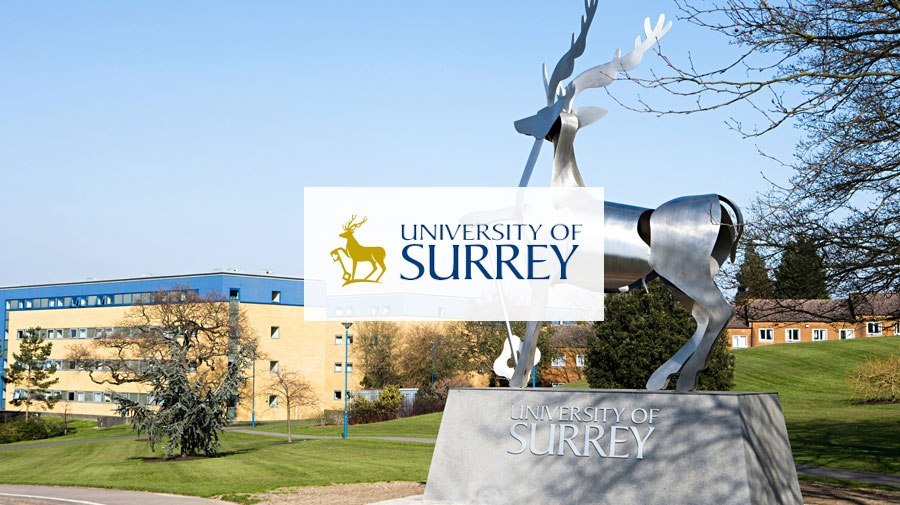Computer Science PhD
Why choose this course
Our PhD research programme provides you with the opportunity to study a wide range of computer science topics – from technologies and systems for securing online businesses and our lives, to technologies inspired by nature for solving complicated real-world problems, and to real-world applications of advanced technologies such as machine learning and pattern recognition. Our expert supervisors, highly rated research activities and excellent facilities mean that by the time you complete your PhD, you will be a specialist in your field.
The Surrey Centre for Cyber Security (SCCS), hosted and managed by the Department of Computer Science, is one of only 14 UK Government recognised Academic Centres of Excellence in Cyber Security Research (ACEs-CSR), and is particularly strong in interdisciplinary research with other departments, with links with Electrical and Electronic Engineering, Psychology, Business, Sociology, Law, and Economics. We also have strong links with global research institutes such as the University of Oxford, Microsoft Research Cambridge and the Pirbright Institute for joint PhD projects.
We strive to excel in our research, with many members of staff being publicly recognised as experts in their respective fields. In the most recent Research Excellence Framework (REF) in 2014, 60 per cent of our research was rated world-leading or internationally excellent, and our research profile has been consistently ranked in the world top 150 and top 10 in the UK according to academic subject rankings of SJTU Academic Ranking of World Universities (ARWU) in Computer Science.
What you will study
Our PhD in Computer Science will give you the knowledge, skills and abilities needed for a career in academia, research and development work in industry, and for a wide variety of professional opportunities.
It normally takes around three to four years to complete a full-time PhD. You’ll be assigned at least two supervisors (a principal and a secondary), who will guide you through your PhD. You’ll learn how to conduct literature reviews, how to develop your research ideas and verify them with experiments, and how to collaborate and perform interdisciplinary research.
Exactly what your studies will look like will depend on your choice of topic: most of our PhD students conduct their research on computers in the Department, but some need access to special hardware in a lab setting. We’ll make sure that you’ve got everything you need to conduct your research during your PhD.
We offer a diverse programme of activities within our Department, including monthly tea parties between PhD students and staff, elevator pitch sessions every other month, as well as bespoke workshops and social events.
Research support
The professional development of postgraduate researchers is supported by the Doctoral College, which provides training in essential skills through its Researcher Development Programme of workshops, mentoring and coaching. A dedicated postgraduate Careers and Employability team will help you prepare for a successful career after the completion of your Ph.D.
Research themes
Secure systems
- Hardware security
- Trusted computing
- Privacy-preserving computing
- User authentication
- Secure communications
- Network security
- Multimedia security
- Digital forensics
- Human factors
- Applied cryptography
- Security protocols
- Formal methods for security
- IoT security and privacy
- Security visualisation
- Intrusion detection
- Data loss prevention
- Cloud security
- Cyber crime
- Side channel attacks and countermeasures
- Mobile security and privacy
- Game theory for security
- Information hiding and steganography.
Nature-inspired computing and engineering
- Computational intelligence
- Evolutionary optimisation
- Machine learning, including deep learning
- Pattern recognition
- Data mining
- Knowledge extraction
- Signal processing
- Medical image processing
- Robotics
- Systems biology
- Morphogenetic engineering
- Neural information processing
- Developmental and cognitive neuroscience
- Time series analysis.
Intakes
- Oct
Application Processing Time in Days: 20
Minimum English Language Requirements
| English Level Description | IELTS (1.0 -9.0) | TOEFL IBT (0-120) | TOEFL CBT (0-300) | PTE (10-90) | |
|---|---|---|---|---|---|
| Expert | 9 | 120 | 297-300 | 86-90 | |
| Very Good | 8.5 | 115-119 | 280-293 | 83-86 | |
| Very Good | 8 | 110-114 | 270-280 | 79-83 | |
| Good | 7.5 | 102-109 | 253-267 | 73-79 | |
| Good | 7 | 94-101 | 240-253 | 65-73 | |
| Competent | 6.5 | 79-93 | 213-233 | 58-65 | |
| Competent | 6 | 60-78 | 170-210 | 50-58 | |
| Modest | 5.5 | 46-59 | 133-210 | 43-50 | |
| Modest | 5 | 35-45 | 107-133 | 36-43 | |
| Limited | 4 | 32-34 | 97-103 | 30-36 | |
| Extremely Limited | < 4 | < 31 | < 93 | < 30 |
Admission Requirement / Eligibility Criteria
Applicants are expected to hold a first or upper-second class degree in a relevant discipline (or equivalent overseas qualification), or a lower second plus a good Masters degree (distinction normally required).
- Course Type: Part Time
- Course Level: Doctoral Degree/PhD
- Duration: 08 Year
-
Total Tuition Fee:
88000 GBP
Annual Cost of Living: 9207 GBP
Application Fee: N/A

